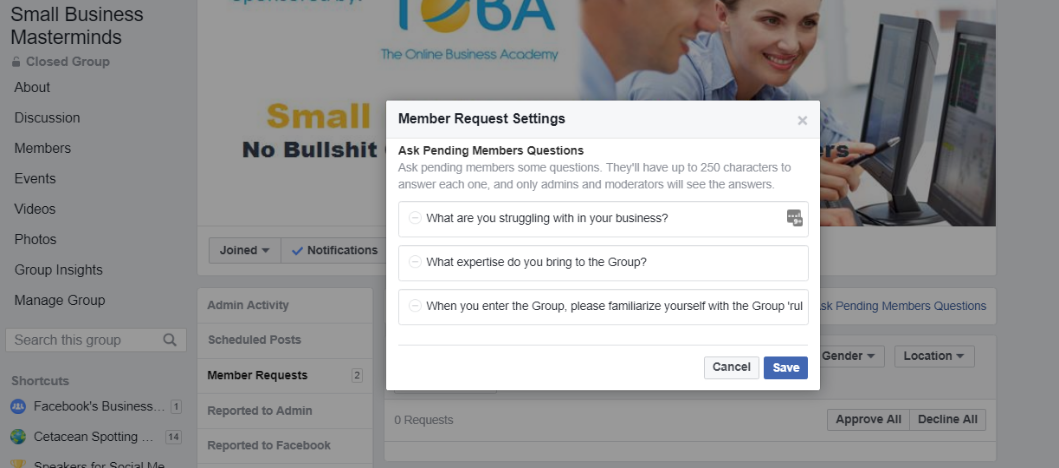Facebook Community Etiquette starts with setting up and managing a Facebook Group with clear expectations and a specific culture. Running a community is no easy task, especially as the group grows in size.
What can start out as a small group with a ‘family’ type of culture, can explode into an entirely different culture and it takes time and effort to keep the perception that you, as the admin, intended for the group.
The discussion today looks at Facebook Groups both from the perspective of the Administrator/s and the Community member.
As a community member of a Facebook Group, it’s easy if you belong to one, but when you belong to many, you have to think about each group that you interact with and what you can do in the group.
Some Groups are free-flowing while others have strict rules, often for an excellent reason.
5 Tips for Facebook Group Administrators
1. Start with WHY and WHAT
Why do you want to start the Group and what do you want to achieve in the Group.
Great reasons to start a group are:
- When you are having a large event, and you want to extend the community to interact before and after the event.
- If you sell a product or service that requires community support.
- Community groups, e.g., Groups within a particular area or Groups to help people through difficult circumstances.
- Business Groups where people with similar interests get together to offer support and learning to one another.
2. Set your Group expectations and revisit them regularly
Set your expectations or ‘rules’ for the Facebook Group in the description area. Keep this active and add information as the FB Group grows.
3. Decide on the Culture of the Group
Think of your Facebook Group as an extension of your business and try and reflect the culture of your company back into the Group.
If the FB Group has been set up as a completely separate entity to your Business, then brainstorm how you want people to interact with the group and what the values are that you would like highlighted in the community.
Select the 3 words to describe the essential values within the Group. e.g., Respect, learning, cooperation, interaction, engaged, helpful, etc.
4. Ask Joining Questions
Facebook has a feature where you can ask questions of people wanting to join the Group. Engaging people before they join is a great way to ensure they are the right person for the Group. It also stops ‘Group Groupies’ from joining. Group Groupies are people that join Groups with one purpose – to sell their products.
TIP: Copy and paste the questions into a worksheet as Facebook do not save these answers once you have accepted someone into the Group.
Questions can be used for many purposes. For example, an entry question to a particular Business Group could be – ‘What is the one thing you would like to learn when joining this Group’ or ‘What area of your business are you needing help with?’ – These answers are invaluable for creating relevant posts within the Group and for writing content, like blog posts.
5. Manage the Group and get help as you grow
As your Group grows, management of the Group will increase. We have found that a ratio of 800:1 works well. If you have 800 people in a group, then one admin will be sufficient. 1600 in the Group will need 2 admins (or community help), 2400 in the Group – 3 admins; assuming that the FB Group is active.
You need to make the hard decisions, and sometimes posts will have to be removed, and you will have someone upset about it. As long as you are sticking to the ‘rules’ and values of the Group, then it should be a firm decision. Having two or more people supporting you in a Group helps with the decision making.
TIP: Always make sure that you choose people wisely in the admin roles as they can remove you as an admin and take over the Group.
Conclusion:
As the Administrator of a Facebook Group, you have the ability to influence Facebook Group Etiquette.
If you would like to know more, please send a message.
Join the SMALL BUSINESS MASTERMINDS GROUP


Leave A Comment